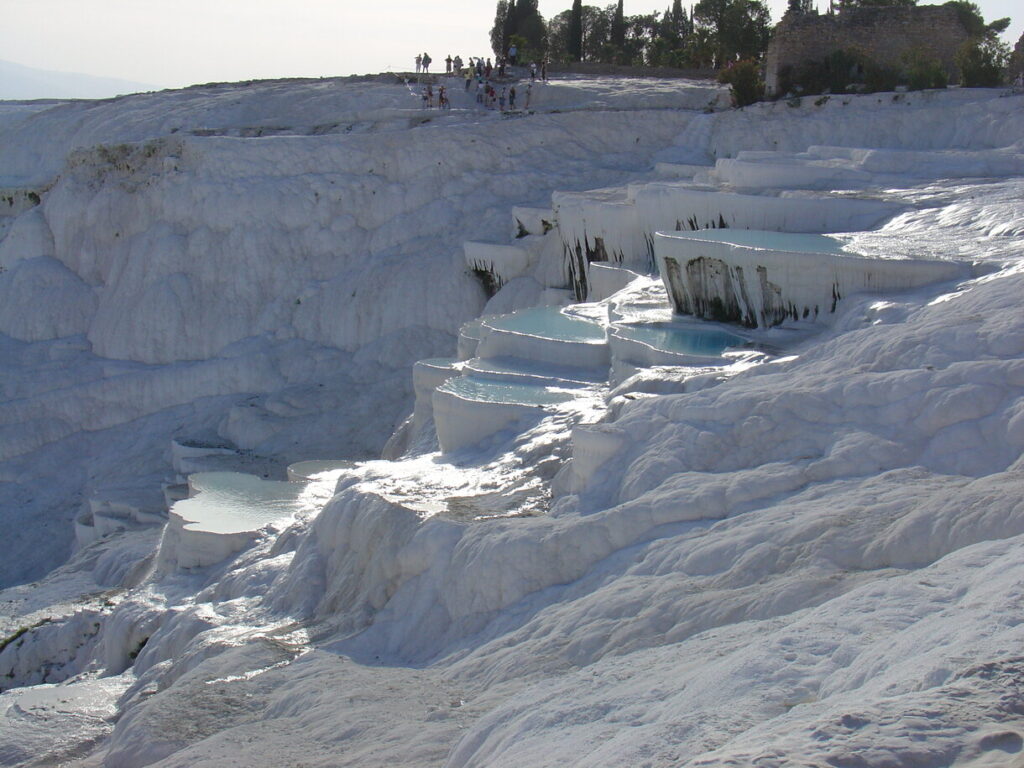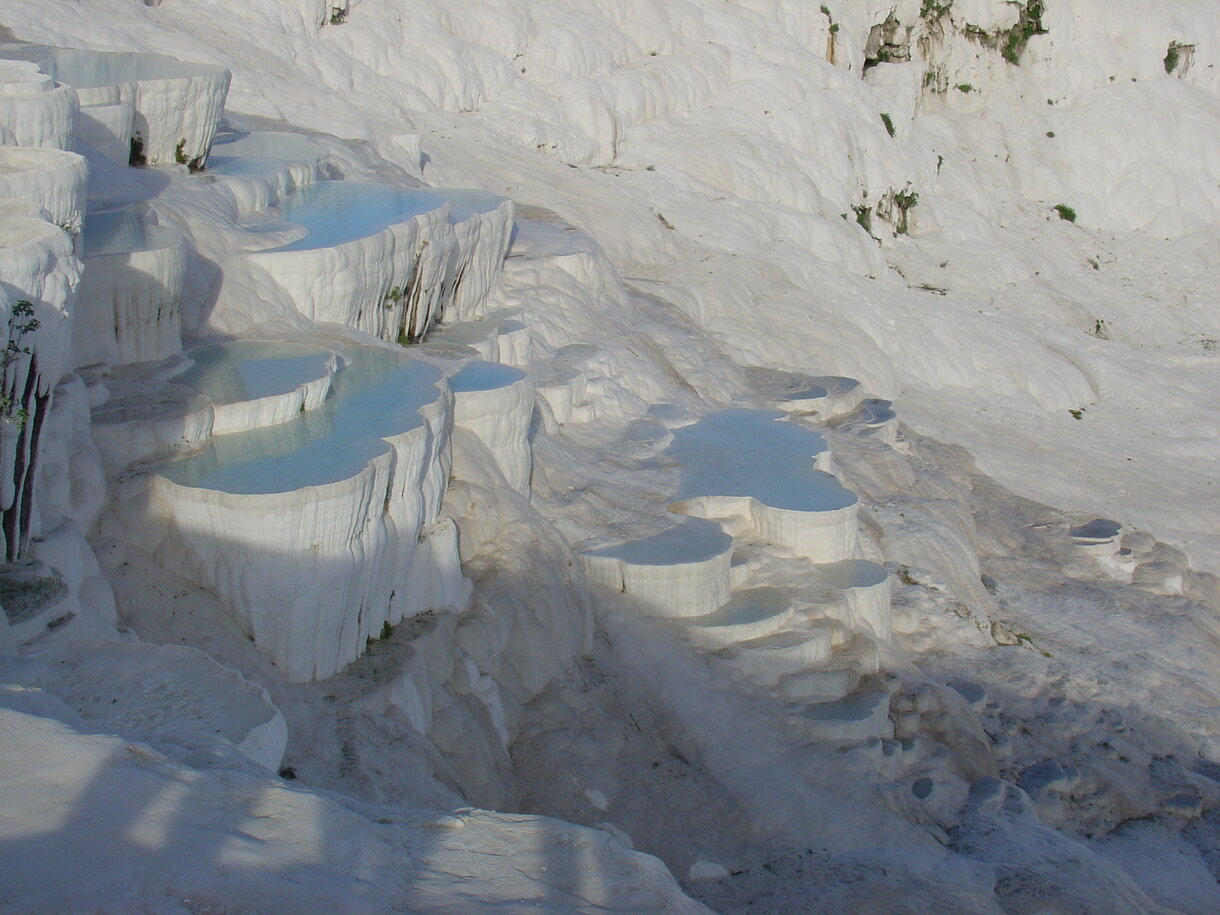PAMUKKALE & HIERAPOLIS: Where Nature’s Miracle Meets Ancient Splendor
After a day of relaxation, we embarked on one of Turkey’s most magical experiences – exploring Pamukkale’s cotton-white terraces and the ancient city of Hierapolis. This UNESCO World Heritage Site (since 1988) represents a breathtaking fusion of natural wonder and human history.

Nature’s Masterpiece: The Travertine Terraces
Pamukkale (“Cotton Castle” in Turkish) features spectacular white terraces formed by calcium-rich thermal springs. Over millennia, flowing water has created surreal formations resembling frozen waterfalls.
Geological wonder: The terraces continue growing today – each liter of water deposits about 2.2 grams of calcium carbonate daily!
In the 1960s-70s, uncontrolled tourism nearly destroyed this fragile ecosystem. UNESCO protection and conservation efforts have restored its glory. Today visitors can experience:
- Pristine sections with active mineral springs
- Restoration areas where nature is gradually healing
- Cautionary examples of human impact
Barefoot walking along designated paths through warm (35°C/95°F) shallow pools is permitted. Many visitors enjoy therapeutic mud baths – the mineral-rich deposits are said to benefit skin and joints.
Hierapolis: The Ancient Spa City
Adjacent to Pamukkale’s terraces lie the magnificent ruins of Hierapolis, founded in the 2nd century BCE as a thermal spa city by King Eumenes II of Pergamon.
Historical gem: During Roman times, Hierapolis ranked among Asia Minor’s most prestigious resorts, attracting imperial aristocracy.
The remarkably preserved 2nd-century Roman theater (capacity 15,000) showcases:
- Exquisite reliefs decorating the stage (skene)
- Acoustic perfection – whispers from the stage reach the top rows
- Panoramic valley views from upper tiers
Other Hierapolis highlights include:
- The sprawling necropolis with tombs from various eras
- Temple of Apollo ruins
- Ancient thermal pool (swimming allowed!)
- Domitian Gate – the city’s monumental entrance
Sleeping Amid History
We stayed at a comfortable thermal hotel where the pool was fed by mineral-rich hot springs. Evening soaks in 40°C (104°F) iron-and-calcium infused waters provided perfect relief after sightseeing.
Pro tip: Book accommodation with direct thermal pool access for an unforgettable experience!
Pamukkale and Hierapolis offer a magical convergence of natural wonder and ancient civilization – an absolute must on any Turkish itinerary that will leave you awestruck.

Leave a Reply